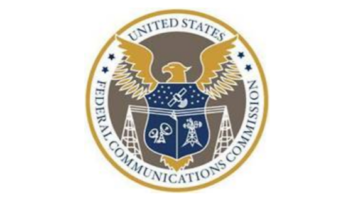 A license transfer violation that occurred more than two years ago was resolved when the Federal Communications Commission agreed to enter into a consent decree with the parties in question.
A license transfer violation that occurred more than two years ago was resolved when the Federal Communications Commission agreed to enter into a consent decree with the parties in question.
In October 2017, the sole shareholders of Big Horn Media (BHM) — John and Mercedes Burkavage — acquired the stations KUEZ(FM) in Fallon, Nev., and KUEZ(FM1) in Reno, Nev. At that time, BHM was authorized to issue 100 shares of stock, yet decided to issue only 27 of those shares as community property to the Burkavages. Then in November of 2017, the Burkavages entered into a buy/sell agreement and stock purchase agreement and issued the remaining 73 stock shares of BHM as community property to Harry and Bonnie Dixon.
[Read: FCC Rejects Appeal From Florida FM Applicant]
This was a problem, the FCC said, since the Burkavages failed to request prior approval of the transaction as required by the Communications Act and FCC Rules.
In 2020, the licensee filed the applications disclosing the unauthorized transfer of control of BHM. Soon after, the licensee amended the applications to clarify the Burkavages’ ownership of the stock shares of BHM prior to the unauthorized transfer of control. According to the commission, the licensee said it filed the applications as soon as it became aware of the filing obligation and at that time, formally requested a waiver to continue operation of the stations and to bring the licensee into compliance with commission’s rules.
During the bureau’s investigation of the unauthorized transfer of control, the licensee also revealed that it had failed to file its Biennial Ownership Report for the year 2019.
The FCC often enters to into consent agreements like this one to resolve clear-cut issues and cut down on the time spent on time-consuming proceedings. As a result, the groups agreed to a civil penalty of $8,000 to be paid within the next six months.
The FCC also anticipated that the applications would be granted successfully in the future, as long as the consent decree is followed to the letter. But the commission declined the request that the decision be ruled as nunc pro tunc, meaning the decision would retroactively correct an earlier error.
That’s because the unauthorized transfer of control occurred on Nov. 30, 2017 — more than two years before BHM alerted the commission to the violation — and because BHM failed to file its 2019 Biennial Ownership Report on time. “Given these facts, we cannot conclude that BHM has adequately discharged its legal obligations and we decline to grant the applications nunc pro tunc,” the chief of the Audio Division at the Media Bureau wrote in its order.







